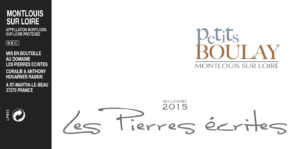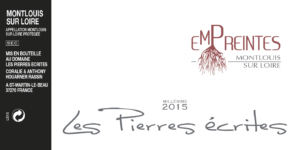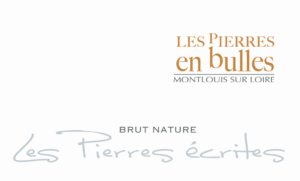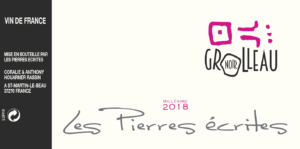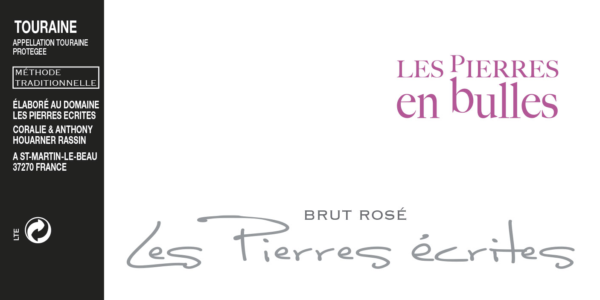
Touraine Brut Rosé – Les Pierres en Bulles
$1.00
Les Pierres en Bulles Brut Rosé is a blend of 60% Gamay, 30% Grolleau and 10% Cot (Malbec.) The vines average 40 years of age. The three varieties are harvested when fully ripe, transported in small plastic crates and then vinified together.
The juice is selected to give the most fine and elegant bubbles possible and to express the vinous essence of the red Loire varieties. It undergoes its primary fermentation in stainless steel tanks with only the native yeasts and natural sugar in the grapes as harvested. The tank is cooled to stop the fermentation with about 18 grams per liter of residual sugar left, so to enable the secondary fermentation in bottle. There is no malolactic fermentation.
The Les Pierres en Bulles Brut Rosé is bottled in January and aged sur latte for 17 months before dégorgement. It is finished with a light dosage of must. 12.5% alcohol. Less than 450 cases produced. RS: 10 gr/l.
About the Producer
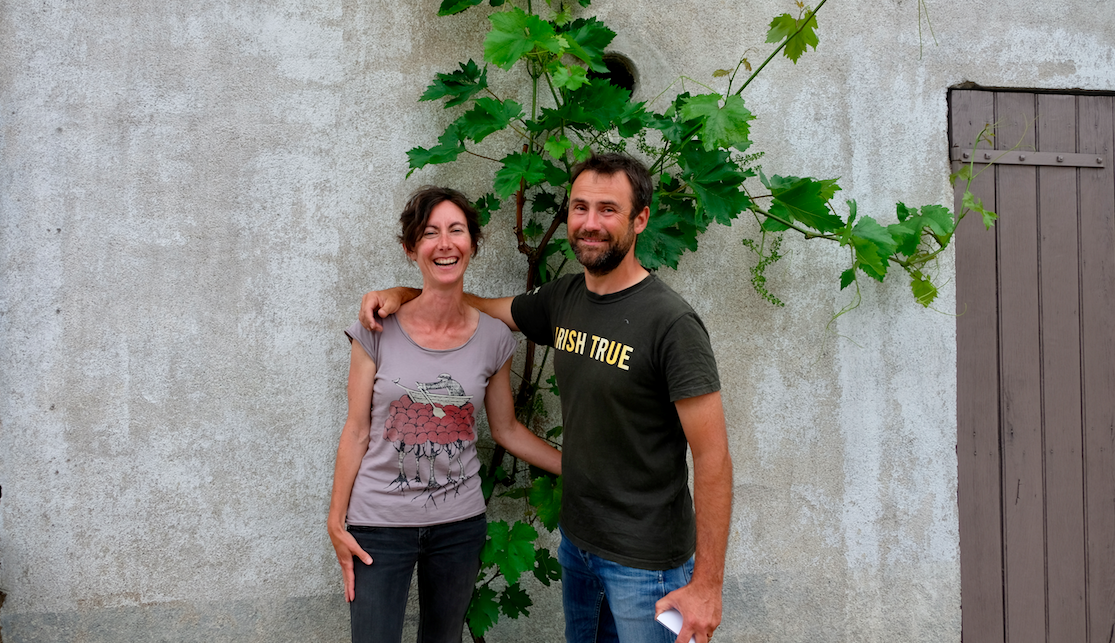
Originally from the Loire-Atlantic part of France, Coralie and Anthony Rassin worked in various wines regions in France and abroad before settling in the appellation Montlouis - Coralie made wines at Jaboulet and Francois Villard and Anthony worked for Pierre Gonon. They took up the challenge to run their own vineyard and winery and put their experiences to work. In late 2015, they acquired the Montlouis estate, Domaine Flamand Deletang in St Martin Le Beau in its entirety. They renamed it Domaine Les Pierres Ecrites to make a new start while also giving a nod to the prior owner, whose grandfather was a famed archeologist of prehistoric drawings on stones in North Africa. Their main cuvée was called “Les Pierres Ecrites.”
The Domaine covers 8 hectares St Martin Le Beau: 5ha in AOC Montlouis planted with 100% Chenin Blanc vines, and 3ha just outside Montlouis in the Touraine appellation planted with Gamay, Malbec, Grolleau, and Cabernet Franc. The soil is limestone clay with silex and varying amounts of sand. The vines average 40 years of age and are sloping ground. Grass is planted in every 2nd row and the topsoil in the others rows is tilled so to check the development of surface roots and no chemicals are used. The Rassins do all vineyard work by hand (debudding, leaf stripping) and are in the process of adapting their pruning methods to put less stress on the vines by letting the sap flow more evenly (an important factor due to the ongoing problem of vine mortality.) Yields are kept to a low 30 hl/ha.
The grapes are hand-harvested and transported in small crates to ensure they arrive intact. The sites are vinified separately with the natural yeasts present on the grapes. The fruit is lightly pressed and as little So2 as possible is used. There is no malolactic fermentation for the still wines; with a pH level of 3 and high acidity, it does not occur naturally.
Farming/vinification practices: organic certification is expected in 2023. The aim is to farm in the most environmentally respectful way possible while adapting to climatic challenges such as Spring frosts and Summer heat waves. The mechanical soil work is carefully calibrated, as well as the choice of rootstocks. They have planted shrubs and trees around the vines to ensure a balanced natural ambiance.
In the cellar , the practices have not changed since the beginning in 2016: manual harvesting, fermentation with native yeasts, and no inputs apart from minimal sulfites. Les Pierres Ecrites is dedicated to maximum reduction of SO2 in their wines. In general, they are more demanding than the organic parameters require. The wines are vegan.

related products
-
Domaine les Pierres Ecrites
Montlouis – Petits Boulay
-
Domaine les Pierres Ecrites
Montlouis – Empreintes
-
Domaine les Pierres Ecrites
Montlouis Brut – Les Pierres en Bulles
-
Domaine les Pierres Ecrites
Grolleau Noir

